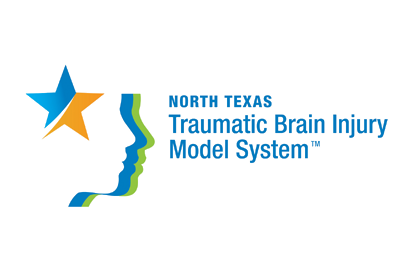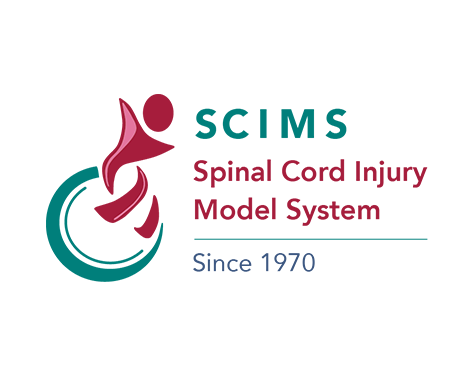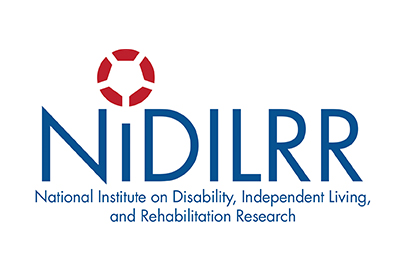Current Research
North Texas Traumatic Brain Injury Model System
The North Texas Traumatic Brain Injury Model System (NTX-TBIMS) is a unique research and clinical collaborative between Baylor Scott & White Institute for Rehabilitation and University of Texas Southwestern Medical Center, dating back to 2002. The NTX-TBIMS is one of 16 centers nationwide that was awarded a competitive grant by the National Institute of Disability, Independent Living, and Rehabilitation Research, due to its recognition as a national leader in TBI research and patient care.
Spinal Cord Injury Model System
The Baylor Scott & White Spinal Cord Injury Model System (BSW-SCIMS) is a nationally recognized program that supports innovative clinical care and research to evaluate medical, rehabilitation, vocational and other services to meet the needs of individuals with SCI. The BSW-SCIMS is one of 14 centers nationwide that was awarded a competitive grant by the National Institute of Disability, Independent Living, and Rehabilitation Research (NIDILRR), due to its recognition as a national leader in SCI research and patient care.
-
We are conducting a healthy lifestyle study for people with traumatic brain injury (TBI). We will meet regularly in groups for 12 months. Volunteers will participate in a 22-session healthy lifestyle program using a telehealth (or virtual) platform. Volunteers will also be asked to complete a program assessment over the phone four times. These assessments will be done at 0, 3, 6 and 12 month marks.
Eligibility criteria
Age: 18-80 years
Timeline: At least 6 months since TBI
Injury: Moderate to severe TBI at time of injury
Health: Clinically overweight; able to participate in physical activity
For more information: [email protected] or call 214.228.5181
-
Funding Agency: Department of Defense: U.S. Army Medical Research Acquisition Activity (USAMRAA)
2022-2027
Grant ID: W81XWH2210999
Prime Site/Principal Investigator: Icahn School of Medicine at Mount Sinai/Kristen Dams-O’Connor, PhD
Site Principal Investigator: Simon Driver, PhD
Purpose: Leverage existing NIH-funded research infrastructure to define the risk factors and clinical and biological signatures of post-traumatic neurodegeneration, while creating rich data resources to share with the scientific community.
Contact: Simon Driver | [email protected] -
Funding Agency: National Institute of Disability, Independent Living, and Rehabilitation Research
2020-2025
Grant ID: 90DPHF0006
Prime Site/Principal Investigator: University of Indiana/Flora Hammond
Site Principal Investigator: Simon Driver, PhD
Purpose: (1) Develop new knowledge and information about potential characteristics and adaptability of evidence-based CDM models for people with TBI. (2) Develop a CDM model (BeHEALTHY) designed specifically for TBI based on available evidence and best practices for optimizing long-term outcomes after TBI. (3) Develop new knowledge about a TBI CDM model, including its active components, feasibility for implementation, measures of impact, sustainability, and potential for knowledge translation. (4) Develop new knowledge among people with TBI, care providers, and policy makers about the characteristics of the emerging TBI CDM model.
Contact: Simon Driver | [email protected] -
Funding Agency: National Institute of Disability, Independent Living, and Rehabilitation Research
2022-2027
Grant ID: 90SIMS0021
Prime Site/Principal Investigator: Kessler Institute for Rehabilitation/Amanda Botticello, PhD
Purpose: The proposed program of research consists of three interlocking projects designed to produce actionable information. Project 1 proposes to expand the capacity of the national Spinal Cord Injury Model Systems (SCIMS) database with the creation of contextual datasets (SCIMS-CDF) to facilitate collaboration and increase scientific inquiry in community environmental factors research. Project 2 will use the SCIMS-CDF to address the need for robust estimates of geographic disparities in health and functioning, employment, and participation after SCI. Project 3 seeks to understand the lived experiences of the people behind the numbers represented by the work of Projects 1 and 2. This project will use Smartphones and wearable technology to observe the dynamic relationship between community features and people with SCI in the context of real-time activities. Understanding the daily challenges and compensatory strategies used by people with SCI to participate in their communities can help urban planners make cities and towns more accessible to everyone and help clinicians advocate for devices and therapeutics needed for consumers to engage in meaningful life activities. -
Funding Agency: National Institutes of Health: National Institute of Neurological Disorders and Stroke
2021-2024
Grant ID: 4UH3NS109497
Prime Site/Principal Investigator: University of Texas at Dallas/Seth Hays
Site Principal Investigator: Rita Hamilton, DO
Purpose: The study will provide an initial evaluation of the use of the ReStore implanted stimulator in the context of stroke. The study will help to assess the prospect that vagal nerve stimulation delivered during rehabilitation is a safe and potentially effective adjuvant for enhancing the efficacy of rehabilitation for the treatment of mild to severe upper limb impairment resulting from chronic stroke.
Contact: Alvaro Carrera | [email protected] -
Funding Agency: National Institutes of Health
2021-2028
Grant ID: 5UG3NS117844
Prime Site/Principal Investigator: Ohio State University/Jennifer Bogner, PhD, MA, BS
Site Principal Investigator: Simon Driver, PhD
Purpose: The goal for the current performance period (UG3 phase) is to (1) Standardize electronic medical record documentation of rehabilitation therapy to allow valid extraction for research and clinical operations; (2) Compare the effectiveness of well-defined rehabilitation approaches to improve community participation and functional independence of patients with traumatic brain injury; (3) Identify patient, provider, setting, and post-discharge factors that modify the effect of therapy on outcomes.
Contact: Simon Driver | [email protected] -
Funding Agency: U.S. Department of Defense (DoD), the Office of Human and Animal Research Oversight (OHARO), and the Association for the Accreditation of Human Research Protection Program (AAHRPP)
2021-2026
Grant ID: W81XWH2110922
Primary Investigator: Chad Swank, PT, PhD
Purpose: This research is being done to find the best dose of robotic walking training after spinal cord injury. We will compare the effects of different levels of robot walking training and standard of care walking training among people with spinal cord injury (SCI) undergoing rehabilitation at Baylor Scott & White Institute for Rehabilitation (BSWIR). In DOOR, we will also use transcranial magnetic stimulation (TMS), a non-invasive procedure that stimulates nerve cells, to measure the electric potential of the neural pathway from the brain to the muscle.
Contact: Alexandria Holden | [email protected] -
Funding Agency: National Institute on Disability, Independent Living, and Rehabilitation Research
2021-2026
Grant ID: 90SIMS0011
Primary Investigator: Mark Powers, PhD
Purpose: Although the physical outcomes associated with SCI have been widely studied, the psychological consequences of sustaining a SCI remain less explored. Prolonged exposure therapy (PE) is a well-researched and highly effective treatment for PTSD across multiple traumas. However, early intervention with Brief PE for PTSD prevention among people post SCI in a rehabilitation setting has not yet been tested. We aim to conduct the first test of the Brief PE intervention to prevent PTSD among patients with SCI.
Contact: Neil Stewart | [email protected] -
Funding Agency: National Institute on Disability, Independent Living, and Rehabilitation Research
2022-2027
Primary Investigator: Simon Driver, PhD
Purpose: To (1) examine the efficacy of the existing GLB-TBI intervention delivered using a telehealth approach to increase the reach and accessibility of the program, (2) partner with an advisory board of people with TBI who self-identify as Hispanic/Latino/a to modify the existing GLB-TBI to create a culturally-relevant Spanish and English version, and (3) develop GLB-TBI training modules so interventionists across the country can deliver the GLB-TBI program in a community setting.
Contact: Evan McShan | [email protected] -
Funding Agency: Defense Advanced Research Projects Agency (DARPA) and Wings for Life
2021-2023
Grant # N66001-17-2-4011
Site Principal Investigator: Rita Hamilton, DO
Collaborators: Texas Biomedical Device Center and UT-Dallas, UTSouthwestern
Purpose: To assess if implanted vagus nerve stimulation (VNS) is able to improve recovery of arm function in people living with a spinal cord injury and people following an cardiovascular accident.
Contacts: Erina Sarker, MPH (SCI) | [email protected]Emma Turner (CVA) | [email protected]
To learn more about this study: www.utdallas.edu/txbdc/trials/sci -
Funding Agency: National Institute of Neurological Disorders and Stroke (NINDS)
2020-2022
Grant # 1U01NS099043-01A1 Subaward No.: 011337-136955
Site Principal Investigator: Chad Swank, PT, PhD
Collaborators: StrokeNET and University of Michigan
Purpose: This research is being done to figure out whether treatment for sleep apnea, in people who have had a stroke or TIA, improves recovery from stroke, and helps prevent future stroke, heart problems, and death.
Contact: Lacy McDonald | [email protected] -
Funding Agency: BSW Foundation
2020-2022
Site Principal Investigator: Seema Sikka, MD
Collaborators: University of Texas at Arlington
Purpose: To test the operation and usability of the smart seat cushion designed to change pressure and offload pressure in different parts of the cushion in order to prevent pressure ulcers.
Contact: Alexandria Holden, MPH | [email protected] -
Funding Agency: Patient Centered Outcomes Research Institute
2017-2022
Contract # PCS-1604-35115 | ClinicalTrials.gov identifier: NCT03422276
Principal Investigators: Simon Driver, Ph.D. (Lead Center: University of Washington, Jeanne Hoffman, Ph.D.)
Purpose: To examine how improving the transition from the hospital to outpatient care can improve the lives of people with moderate to severe TBI. In this study, patients with TBI who are discharged from inpatient rehabilitation at one of six national TBI Model Systems sites will be randomized to: (1) Standardized Discharge Care (SDC) or (2) SDC plus a telecare program called Optimized Transition Care (OTC). The project team will compare functioning and quality of life at 3, 6, 9, and 12 months after hospital discharge in these two groups.
Contact: Jacqueline Nguyen | [email protected] -
Funding Agency: National Institute on Disability, Independent Living, and Rehabilitation Research (NIDILRR)
2020-2023
Site Principal Investigator: Chad Swank, PT, PhD
Purpose: To compare the effects of robot walking training with usual care walking training for people with spinal cord injury (SCI) undergoing inpatient rehabilitation.
Contact: Faith Meza | [email protected]


